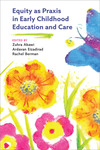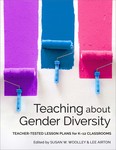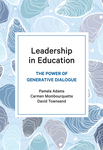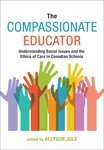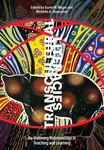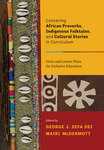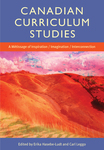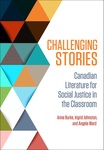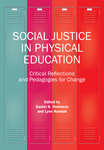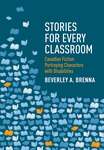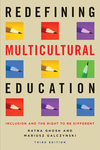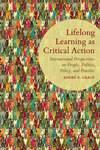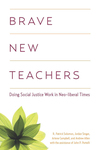We don’t actively support Internet Explorer
It appears that you are using Internet Explorer, which has been discontinued by Microsoft. Support has ended for versions older than 11, and as a result you may face security issues and other problems when using it.
We recommend upgrading to a newer browser such as Firefox, Google Chrome, or Edge for a much better experience across the web.
While this site may work with Explorer, we are not testing and verifying it, so you may run into some trouble or strange looking things.
Educators on Diversity, Social Justice, and Schooling
A Reader
Edited by Sonya E. Singer, Mary Jane Harkins
Overview
Educators on Diversity, Social Justice, and Schooling identifies categories of privilege and marginalization in the “master narrative” of social discourse and works to bring equity into classrooms across Canada. This timely text challenges students to question the power relations that value one group’s system of knowledge over another and brings this to bear on the classroom environment.
This volume features contributions by educators from diverse disciplinary backgrounds and includes chapter-end key questions, additional resources for more information, and suggested activities to engage students in critical thought and to ground concepts of diversity and social justice in practical application. Students in undergraduate and graduate education studies, curriculum studies, and foundational studies programs will value the combination of theoretical and practical knowledge that this collection puts forth to foster a new generation of inclusive educators.
Table of Contents
CONTENTS
SECTION I: DIVERSITY
Chapter 1: The Concept of Race—Didi Khayatt 2
Chapter 2: Impoverished Pedagogy: A Critical Examination of Assumptions about Poverty, Teaching, and Cultural and Linguistic Diversity —Luigi Iannacci 13
Chapter 3: Diversity, Adversity, and Determination: Making a Difference for African Nova Scotian Students—Wendy Mackey 39
Chapter 4: Shades of Grey: In between Assimilating, Interjecting, and Re-Inventing CRRP: Exploring a Teacher Education Initiative—Manu Sharma 58
Chapter 5: Not “Just,” but Just: A Conversation on Diversity, Social Justice, and Culturally Responsive Teaching—Carmen Rodriguez de France and Sarah Winona Waldron 77
Chapter 6: The Gospel of Diversity: Performing Diversity to Create the Appearance of Institutional Change—Ann V. Dean 99
SECTION II: SOCIAL JUSTICE
Chapter 7: Colonialism: The Gift that Keeps on Giving—Gowri Parameswaran 120
Chapter 8: Towards an Understanding of Inclusion through the Playbuilding of “Beyond the Masks”—Joe Norris, Sohyun An, Corrie L. Davis, Jillian Ford, Paula Guerra, Leena Her, Brad McDonald, Patricia Alvarez McHatton, and Scott Ritchie 141
Chapter 9: Teacher Stories of Teaching for Social Justice in a Marginalized Community—Sarah Elizabeth Barrett and Carl E. James 178
Chapter 10: Discourse Analysis: Investigating Canada’s Child Advocates as Catalysts for Change—Daniella Bendo 194
Chapter 11: Navigating Neoliberalism: Challenges Faced by Social Justice Educators—Stephanie Tuters, John P. Portelli, and Angela MacDonald-Vemic 215
Chapter 12: Digital Natives, Social Justice, and Interrupting Schools as Modernist Project Identity-Sorting Sites—Susan Beierling and W. James Paul 234
SECTION III: SCHOOLING
Chapter 13: Hoopoe and Young Eagle: Conversations from the Forest—Adrian Downey and Gonen Sagy 256
Chapter 14: Creating Dialogue and Unschooling —Kathy Sanford, Bruno de Oliveira Jayme, and David Monk 268
Chapter 15: Integrating an Ethic of Social Responsibility and Mindfulness with Critical Pedagogy in Teaching for Social Justice: Preparing Teacher Candidates to Respond to Diversity in Schools—Yvette Daniel and John Antoniw 290
Chapter 16: Inclusive and Accessible Physical Education for Diverse Populations—Wendy Barber, Lorayne Robertson, Bill Walters, and Geoff Whent 307
Chapter 17: Being Somebody: Inclusive Post-Secondary Education Programs within a Disability Studies Framework—M. Lynn Aylward and Cynthia Bruce 329
Chapter 18: Relational Classroom Management: Lessons Learned from Teachers in Indigenous Communities—Patricia Danyluk 345
Chapter 19: “All These Books Were Kinda Teaching Us Lessons”: Anti-Oppressive Children’s Literature in the Elementary School Classroom—Kate Paterson 358
Contributor Biographies 375


